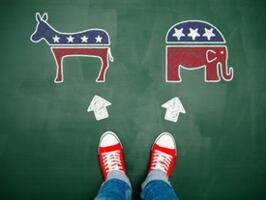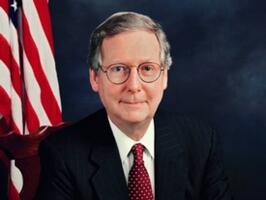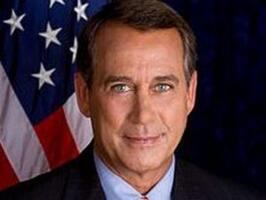Debate Night: Democrats Are Already Calling A Winner
At long last, the Democratic candidates will take the stage for their first presidential debate, but Democratic voters are already predicting a victory for the party’s current frontrunner.

At long last, the Democratic candidates will take the stage for their first presidential debate, but Democratic voters are already predicting a victory for the party’s current frontrunner.

Voters may have mixed opinions about the number of refugees the government should allow to resettle in the United States, but most are concerned that taking in a large number of Syrians poses a security threat.

Some lawmakers are proposing that the U.S. military establish a no-fly zone in Syria to protect civilians in that civil war-torn country, and voters here tend to think that’s a good idea. But they also worry that it may lead to a U.S.-Russian military conflict.

Voters continue to feel the federal government is not devoting enough attention to the terrorist threat of radical Islam here at home.

Voters still insist they value substance over more superficial factors when deciding whom to vote for, but they are a bit more likely to admit their emotions play a role.

Voter attitudes about Planned Parenthood have not changed in the nearly three months since the release of the first secretly-taken video showing representatives of the group discussing the sales value of body parts of aborted babies. But for a sizable majority, it’s an issue they’ll remember come election time.

Most U.S. voters still consider the United States the best country in the world, but they don’t think we are winning any popularity contests.

U.S. voters want to put the breaks on the Obama administration’s plans to bring tens of thousands more refugees into this country over the next two years, many from the Middle East, and strongly believe Congress should have a say in the matter.

Vice President Joe Biden is keeping everyone guessing about whether he will run for president in 2016, but how would he fare against his party’s frontrunner, Hillary Clinton?

Democrats are all for letting Joe Biden participate in their first presidential candidate debate and are pretty convinced that it’s only a matter of time before he enters the race.

It looks like Republican voters are ready to clean house when it comes to the party's top two congressional leaders.

Russia is ramping up its military and political presence in Syria and has begun bombing there in an effort to aid its allies in the Syrian government and their fight against the radical Islamic State group (ISIS).

Republicans feel pretty good about John Boehner’s decision to resign as speaker of the House of Representatives. Democrats are more likely to see Boehner’s resignation as bad both for the country and the GOP.

President Obama’s health care law might have taken a back seat to other issues like immigration in the early stages of the presidential campaign season, but will it impact how voters choose their candidates next year?

Pope Francis addressed a joint session of the U.S. Congress yesterday emphasizing his views on immigration, climate change and political cooperation, among others. Voters have mixed feelings about the impact religious leaders have on government policy but are quite clear they don't want someone in the pulpit telling them how to vote.

Republican presidential hopeful Ben Carson has been criticized by other candidates and the media for saying he could not support a Muslim for president of the United States. But guess what? Over half of U.S. voters agree.

Increased media attention on the Syrian migrant crisis has undoubtedly raised new concerns about the global impact of that country’s ongoing civil war, and U.S. voters are listening. But does that mean the United States should take a more active role in stemming the violence?

Most voters still don't think the federal government should have the final say on gun ownership and don't like a country in which only the government has guns.

The Obama administration announced this week plans to increase the total number of worldwide refugees accepted into the United States to 100,000 by 2017 in response to the ongoing migrant crisis from parts of the Middle East into Europe. Few U.S. voters agree with this decision, perhaps in part because a sizable majority have national security concerns.

It may be a different election cycle with different candidates, but at least one thing hasn’t changed as far as most voters are concerned – media bias.